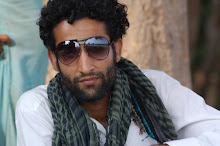
NEW DELHI—Delhi police jailed an anticorruption advocate on Tuesday after earlier preventing him from going on a public hunger strike to demand the government create an even-more-powerful ombudsman than envisioned in a bill before Parliament.
Anna Hazare was arrested early Tuesday morning under a temporary legal provision that bans public gatherings and protests at a New Delhi park where he was planning to hold his hunger strike, said Rajan Bhagat, spokesman for the Delhi police. Mr. Bhagat said the prohibition was issued after Mr. Hazare refused to agree to the police's conditions for allowing the protest, including restricting the fast to three days and limiting the number of protesters at the site to 5,000.
Mr. Hazare, 73 years old, was later sent to the capital's Tihar Jail for seven days after he failed to post bail or to promise before a magistrate not to defy the protest ban, which remains in place. He is now in the same jail as politicians arrested in recent months in connection with a slew of government scandals that created a wellspring of support for the activist's anticorruption efforts.
Mr. Bhagat said the police issued an "unconditional release warrant" for Mr. Hazare and his aides late Tuesday night. An aide to Mr. Hazare who was released told television reporters outside the jail that Mr. Hazare has said he won't leave until he receives "written assurance" from the government that he will be allowed to go ahead with his plan for the hunger strike.
Indian social activist Anna Hazare greets supporters from a police vehicle in New Delhi on August 16, 2011, after his arrest by police authorities.
Mr. Hazare's detention comes amid a push by anticorruption campaigners in recent months for the Congress party-led government to take concrete action against rampant corruption in the nation's political system. He went on a similar fast in April, after which the government formed a joint committee of five civil-society representatives and five senior government ministers to draft a bill establishing an anticorruption ombudsman.
But Mr. Hazare and his colleagues on the committee soon disagreed with government negotiators over the scope of the ombudsman's jurisdiction. The government in late July approved a draft of the legislation, known as the Lokpal Bill, but Mr. Hazare's anticorruption campaigners have burned copies in protest, saying it fell short of their demand that all government officials, including the prime minister, fall under the bill's purview. The bill included most government offices under its jurisdiction, but government officials said several of Mr. Hazare's demands, particularly bringing a sitting prime minister under the proposed ombudsman's purview, were "impractical" and contradicted the supremacy of parliamentary democracy.
Prime Minister Manmohan Singh on Monday said the government was committed to acting against corruption and that it wanted a "strong Lokpal to prevent corruption in high places."
Addressing the nation on India's Independence Day, Mr. Singh said those who disagree with the version of the bill in Parliament had the right to do so, but "they should not resort to hunger strikes and fasts unto death."
Government ministers defended Tuesday's police action at a news conference after Mr. Hazare's arrest.
"This government is not against democratic peaceful protest. We acknowledge that right," said Home Minister P. Chidambaram. "But to say we will defy the conditions, we will defy the orders, I think that's unacceptable in a democracy."
Television footage on Indian channels from outside Mr. Hazare's residence Tuesday morning showed his supporters waving Indian flags and shouting slogans against the government. India Against Corruption, a group that supports Mr. Hazare and his campaign, circulated a text message urging people to protest the police action against Mr. Hazare. "Come in large numbers. Today, the final battle has begun," the message read.
As the day went on, protesters also gathered in other cities in the country.
In New Delhi, riot police cordoned off the park where Mr. Hazare's fast was supposed to take place. More than two dozen protesters gathered a few hundred meters away from the park and shouted slogans against Congress party chief Sonia Gandhi, who is in the U.S. for medical treatment. Police detained them a few minutes later. Ajay Sahni, a 30-year-old lawyer at a local court in Delhi, said he had come out in support of Mr. Hazare because he was "fed up with corruption."
At an afternoon news conference, Delhi's police chief said more than 1,400 protesters had been detained and were being bused to a sports stadium in the north of the city. A police officer told The Wall Street Journal that they would be released later in the day.
Arun Jaitley, a leader of the opposition Bharatiya Janata Party, condemned the detainment of Mr. Hazare.
"Does he have a right to protest? Does he have a right to dissent? Or have we abandoned civil rights in this country?" Mr. Jaitley asked on Indian television channel NDTV.
"This is a very sad day for Indian democracy," he said.
On Tuesday morning, police also detained two other top anticorruption campaigners in Mr. Hazare's camp: information-rights activist Arvind Kejriwal, who is also now in Tihar Jail, and former senior police officer Kiran Bedi.









